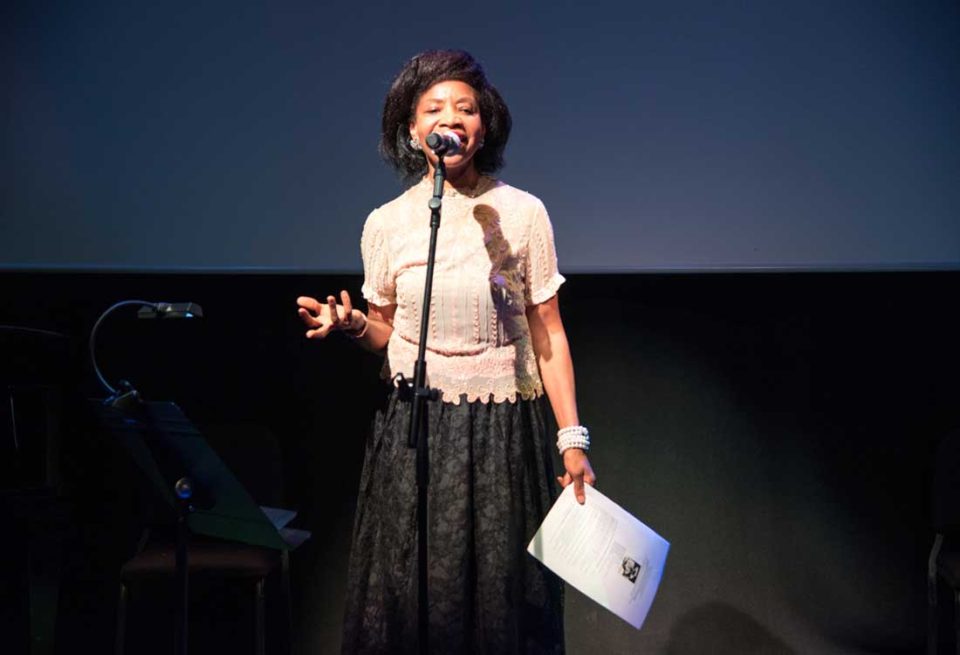Shirley Thompson could have been anything she wanted to become because from childhood she was not only good at everything, even when playing games, but has always strived to be ‘her best self’ and to be the best at everything she does. In school she played netball to a high level and was the fastest runner and the best jumper. In fact, sports and track athletics in particular, would have claimed the young impressionable Shirley Thompson were it not for her mother who decisively turned down a formal request from the National Sports Association of the UK to allow her daughter, then only 14 years old, to be trained to run the 100 metres with the aim of representing Great Britain.
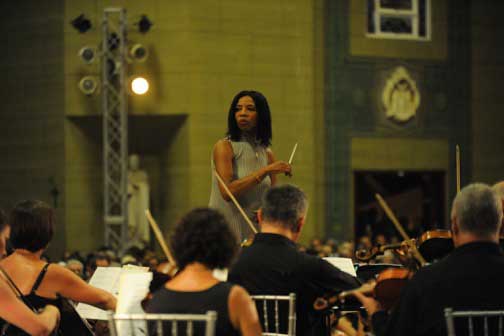
Had Shirley’s mother not placed greater value on her daughter’s artistic and intellectual abilities, and had she not refused to have her daughter channeled at an early age into the brawny world of sports, today’s Shirley Thompson would not have become that leading voice in the world of contemporary music that she is and the world would have been denied the talents of a composer, conductor, artistic director, academic, violinist and film-maker and educator.
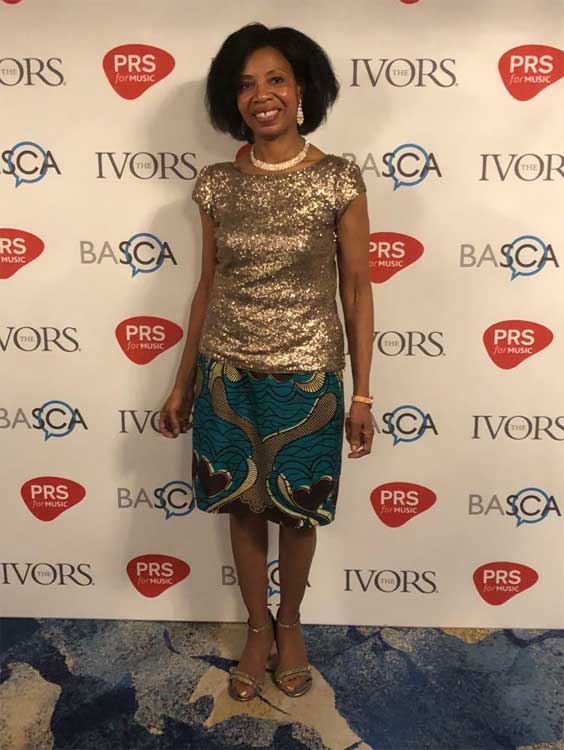
Shirley Thompson is not cast in the same mould as other contemporary classical composers and musicians. This is because she is no mere musician but at the core, a cultural activist. Her worldview and the genesis of her activism had their origins as early as her pre-teen years when she had her first insidious experience of racism and racial stereotyping. Academically, she was an A+ student at primary school but as she began to prepare for the 11+ exams for transition into high school, her grades were systematically downgraded to ensure that she was placed in one of the worst schools. At that juncture she was told that if she performed well she would be transferred to a better school. It was only through the persistent lobbying of her mother who refused to accept the stifling of her daughter’s academic abilities and Shirley’s own consistent A++ performance that she was duly transferred to a Grammar school. From then she realized that as a Black person, no matter how good you are, you were never good enough to go to the better schools. This has been ingrained in the sub-conscious of generations of black children and their parents and she rues the fact that these unfair systems are still doing it to thousands of gifted and deserving students.
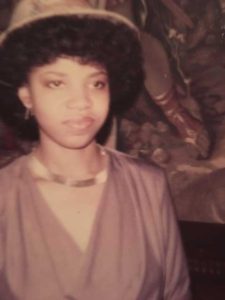
BEGINNINGS
Shirley can trace her musical awakening back to age 3 when she discovered an old piano in an attic at a house next door and started banging at the keys. By the age of four she was already playing the recorder, by age eleven the violin and the piano at age 15 when she became torn between the two. She not only successfully sat music at ‘A’ level but at this time also led the local youth orchestra, the first black person to do so. When it was time to go to university, Shirley had no doubt that she wanted to pursue a musical career but not being a one-dimensional person she also read history along with music at the University of Liverpool.
Pursuing a classical musical career meant enrolling in a conservatory but that door was not open to a black person, so for a while Shirley experimented with broadcasting, working as a production assistant with a music publishing company while reading for her Masters degree at Goldsmith’s College in Composition and Contemporary Aesthetics. She became a composer by acclamation, for as she explains, there is no professional accreditation – save for when your peers recognize you as a composer.
Becoming a classical music composer was an unusual choice for a young black woman and Shirley credits her parents with being very progressive in not challenging her choice. She acknowledges the debt owed to them, especially her mother with whom she continues to share a close bond. In spite of her demanding schedule, she makes the time to visit them in Jamaica several times a year after they retired to the island where they now live. The Thompsons were part of the Windrush Generation having emigrated from Jamaica in the 1960s. They got married in the UK where Shirley was born. Father Thompson who hailed from Cashew Walk in St Catherine parish worked as a forklift driver while her mom was a trained nurse originating from Annotto Bay the parish of St. Mary. Shirley recalls that growing up in London was like living in Jamaica being surrounded by a family of aunts, uncles and cousins, having Jamaican friends and eating Jamaican food. She remains equally proud of her British and Jamaican heritage.
Images of Shirley’s Parents below
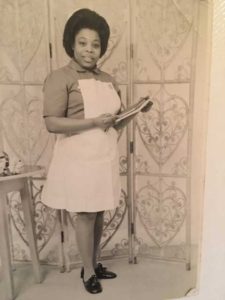
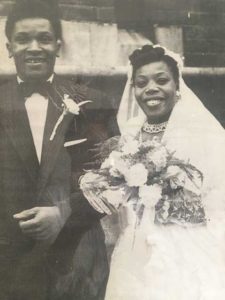
PHILOSOPHY AND MISSION
In retrospect, Shirley is grateful for the fact that she was not trained at a Conservatory as such training would have steered her career into one of imitating the masters instead of creating and innovating her own music. Her mission is to document the black experience in and through experimenting with musical forms. She believes in using the power of music as a transformative tool – in the process elevating the culture of African and Caribbean music within the classical musical industry, and blending elements of Soweto Joy and High Life from Africa, Reggae from Jamaica and Soul from America. Her philosophy is grounded in research which shows that the roots of classical music in style and instruments came out of Africa and not just out of Europe as is the received wisdom. This means that Shirley Thompson is continually ‘swimming against the tide’ setting her apart from her contemporaries and consigning her to a lonely professional existence lacking the collegial atmosphere of exchange, debate and even competition.
SHIRLEY THOMPSON’S ARTISTIC OEUVRE
Notwithstanding, she is arguably Britain’s most innovative composer, sought after for special commissions, for TV productions and stage performances. Shirley Thompson’s music is performed and screened worldwide. She has been described as an artist who draws on a range of influences from the classical tradition to modern urban sounds and as a composer with breath-taking vision. She remains the first and only woman composer in Europe to have written and conducted a symphony in the last 40 years. We present a small/select listing of her major works/achievements:
- New Nation Rising, A 21st Century Symphony has been described as ‘a vibrant, exciting and totally original work’, an epic musical story celebrating London’s 1,000 year history performed and recorded by the London Philharmonic Orchestra. Originally commissioned for the queen’s golden jubilee in 2002, it was later assumed as a framework for the 2012 Olympic Opening Ceremony.
- Launch of the Shirley Thompson Ensemble (1995 ) comprising instrumental soloists, singers, dancers and visual artists
- The Woman Who Refused to Dance (2007) for the opening of the Parliamentary exhibition of the Abolition of the British Slave Trade
- Voices of Change (2009) commissioned to commemorate 100 days of Barak Obama’s Presidency
- Mandela’s Tales (2012) premiered at the Purcell Room, Queen Elizabeth Hall London and later performed by the Gordonstown School, Cape Town South Africa
- Sacred Mountain: Incidents in the Life of Queen Nanny of the Maroons (2015)
- Women of the Windrush Tell their Stories (2018)
The complete array of Shirley Thompsons compositions and performances can be found on the website www.shirleythompsonmusic.com.
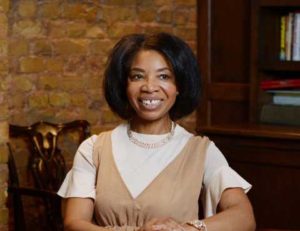 Shirley J. Thompson (PhD) is Reader in Composition and Performance at the University of Westminster, London. She has served on several national arts institutions including the London Arts Board, the Arts Council of Great Britain and she was the first female executive of the Association of Professional Composers. She currently serves as an elected member of the Classical Music Executive for the British Academy of Song Writers, Composers and Authors. Among her most recent awards is the ‘Influencer of the Year’ for 2018 from the Black British Business Awards. In 2018 she received an honorary doctorate (D.Litt) from the University of the West Indies. And in the Queen’s New Years Honours List for 2019, she was awarded the OBE for services to music.
Shirley J. Thompson (PhD) is Reader in Composition and Performance at the University of Westminster, London. She has served on several national arts institutions including the London Arts Board, the Arts Council of Great Britain and she was the first female executive of the Association of Professional Composers. She currently serves as an elected member of the Classical Music Executive for the British Academy of Song Writers, Composers and Authors. Among her most recent awards is the ‘Influencer of the Year’ for 2018 from the Black British Business Awards. In 2018 she received an honorary doctorate (D.Litt) from the University of the West Indies. And in the Queen’s New Years Honours List for 2019, she was awarded the OBE for services to music.


